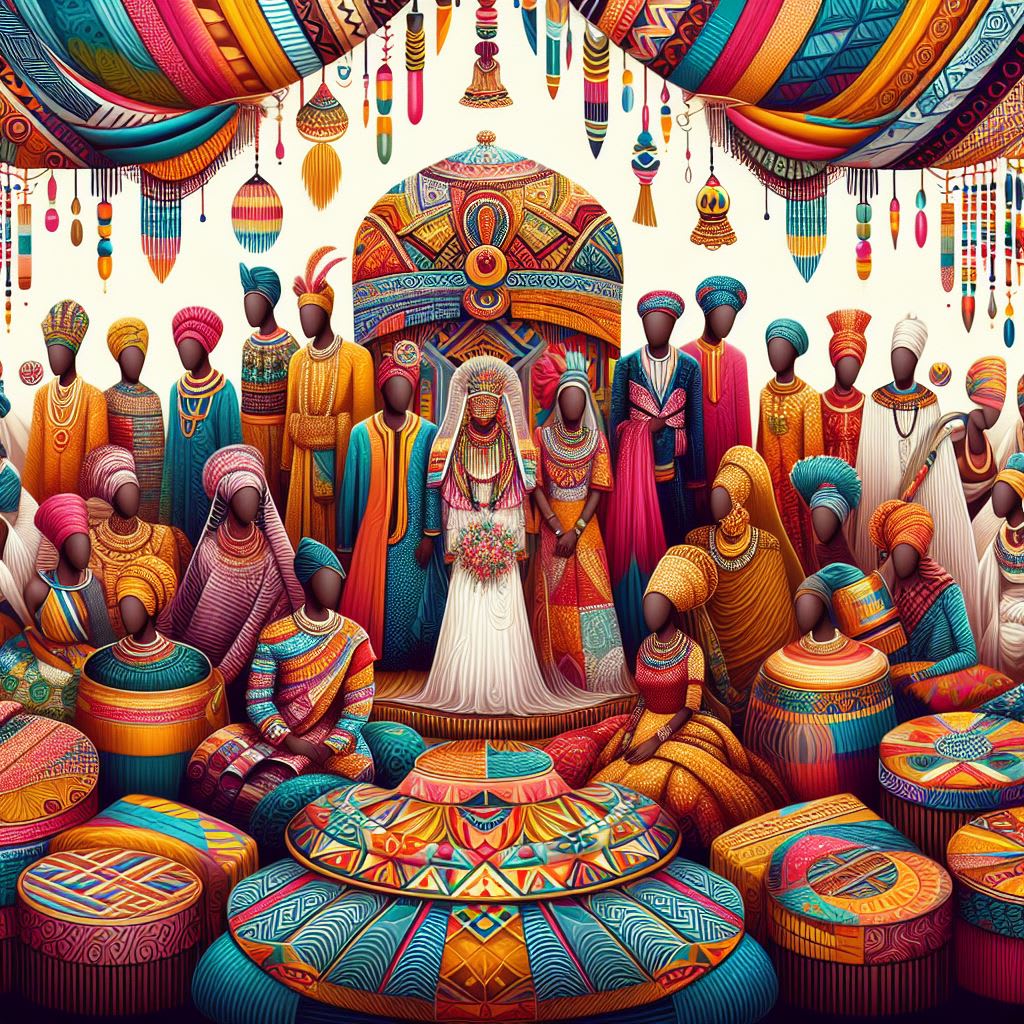Unlocking the Rich Tapestry of African Marriage Traditions: A Comprehensive Guide to Customs, Rituals, and Cultural Significance
Exploring the Vibrant Diversity and Time-Honored Practices Across Africa's Marriage Landscape

A fascinating aspect of African marriage is its deep cultural significance and the diversity of customs and traditions practiced across the continent. In many African societies, marriage is not just a union between two individuals but a joining of families, communities, and even ancestors. Here are some intriguing facts about African marriage:
Diverse Ceremonies: African marriage ceremonies vary widely from region to region and tribe to tribe, each with its own unique rituals, customs, and symbols. These ceremonies often involve elaborate preparations, colorful attire, lively music, and traditional dances.
Bride Price/Dowry: In many African cultures, the concept of bride price or dowry is prevalent, where the groom or his family presents gifts, livestock, or money to the bride's family as a sign of respect and appreciation. This practice symbolizes the groom's ability to provide for his bride and is a way of solidifying the bond between the two families.
Polygamy: Polygamy, the practice of having multiple spouses, is still common in many African societies, although its prevalence varies. In some cultures, having multiple wives is a symbol of wealth, status, and fertility, and is often practiced within the context of traditional and religious beliefs.
Arranged Marriages: Arranged marriages, where families play a significant role in selecting a spouse for their children, are still prevalent in some African cultures. These marriages are often based on considerations such as family background, social status, and compatibility rather than romantic love.
Traditional Healers and Rituals: In some African cultures, traditional healers or spiritual leaders play a central role in marriage ceremonies, performing rituals to bless the union, ward off evil spirits, and ensure fertility and prosperity for the couple.
Community Involvement: African marriage is often viewed as a communal affair, with the entire community playing a role in the celebration and support of the newlyweds. Weddings are typically attended by extended family members, friends, and neighbors, who come together to celebrate and offer their blessings to the couple.
Symbolic Gestures: Many African marriage customs are rich in symbolism, with rituals and gestures designed to represent the values, beliefs, and aspirations of the couple and their families. These may include exchanging gifts, pouring libations, or jumping over a broom to signify the transition into married life.
Spiritual Significance: Marriage in African cultures is often imbued with spiritual significance, with ceremonies and rituals designed to invoke the blessings of ancestors, deities, or spiritual forces. These rituals may vary depending on the religious beliefs of the couple and their community.
Role of Elders: Elders often play a significant role in African marriage ceremonies, providing guidance, wisdom, and blessings to the couple as they embark on their marital journey. Their presence signifies the importance of tradition, respect for ancestors, and the passing down of cultural knowledge from one generation to the next.
Rites of Passage: Marriage is often seen as a rite of passage in many African cultures, marking the transition from adolescence to adulthood. Young men and women are expected to undergo certain rituals and ceremonies before they are deemed ready for marriage, which may include initiation rites, circumcision, or other cultural practices.
Continuation of Lineage: One of the primary purposes of marriage in African societies is the continuation of lineage and the preservation of family heritage. Children are highly valued and are seen as essential for carrying on the family name, traditions, and customs. This emphasis on lineage often influences decisions regarding marriage partners and family planning.
Role of Women: While gender roles vary across different African cultures, women often play significant roles in marriage and family life. They are responsible for domestic duties, child-rearing, and sometimes managing the family's finances. However, the status and rights of women within marriage can vary widely depending on cultural norms and practices.
Overall, African marriage traditions reflect the rich cultural heritage, values, and beliefs of the diverse peoples of the continent. Whether it's through elaborate ceremonies, symbolic gestures, or communal celebrations, marriage in Africa is a testament to the enduring importance of family, community, and tradition.





Comments (1)
Great Africans !